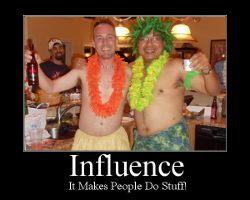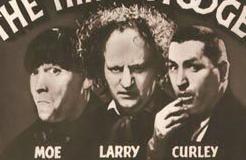I woke up to another Monday today. Monday is the day I ask myself the question again, “Are you reaching the right people?” It goes a bit deeper when I start asking “Are you reaching them with the right message?” If I can answer both of these with the affirmative, the next step is to repeat it and try to be sure the message continues to reach the right people, with the right message, and at the right time. Getting the right time means doing it again and again until their time is right. At the top of my list is reaching the right people.
How To Reach the Right People … The Influencers!
I think for a lot of people trying to reach a market, the question of how to reach the right people totally confounds them. It is actually a bit tricky and it takes some serious thought. It gets easier with training, experience, and research, but it is always a challenging part of marketing. Good marketing often means reaching the buyer themselves, but the best marketing often means reaching the people who influence the buyer. It is called influence marketing. Knowing who is an influencer and who is a buyer is an important step to knowing the right message to deliver. Getting it wrong means wasting a lot of time and money.
Car companies learned about this a long time ago. They realized that, statistically, men will be more appreciative of the 7.0L V8 engine and the 505 horsepower, while ladies will care more about the handy button to automatically move the power seat back to where she left it (before her gearhead husband got in and moved it). They segment their market and deliver a different message to reach the right person with the right message. By doing this, they are selling features to each party, but they also know that if I want that 7.0L V8 engine, I will use that silly seat button they told me about to influence my wife. Now that is how to get a car sold! Reaching the right person very often means knowing more than just them, but also who influences them, and how.
If I was selling wedding dresses, I would know that the bride is not always the only participant. There is another important point of influence. I need to reach her father with the message that his little darling will feel like the princess she wanted to be when she was five years old and that this is that moment she had planned for all those years. I need to reach the bridesmaids who will tell the bride how gorgeous that dress makes her look. I need to reach the influencers or the whole thing could be shot down and I have just another expensive dress on the rack.
For me, I consider who reads my work. Exactly who is attracted to a blog about marketing? Probably people who have a product or service to offer, right? The fact is that it is mostly people who would never in a million years consider paying me to help them build their market. This is just fine for me, because it helps me focus on being useful. If I am useful, people will come back. If I am even more useful, they will pass it along to others in their circle of influence. Because I know that most of my readers are not directly in the market to buy my services, the focus is a lot more on being helpful. Reaching the right people means reaching the influencers, and not just the buyers directly. Seriously, most CEOs and VPs are not looking for me. My job is to be sure they find me, but when the message is delivered by somebody influential to them, it is better than if I deliver it right to them. That is crazy back-door thinking, right? Not really. Just imagine the marketing assistant who says “I like this guy, boss. We should talk to him.” That influence will always go a lot further than just reaching the boss and explaining how great my offering is. The right message is that I am not the competition, but rather here to be useful. The right timing means that readers will subscribe to my blog and find me again when their timing is right.
If you want to reach the right people, you often must look far beyond the obvious target. Think about how you can better reach your market influencers. It is Monday, and it is a great way to start your week.
Podcast: Play in new window | Download




